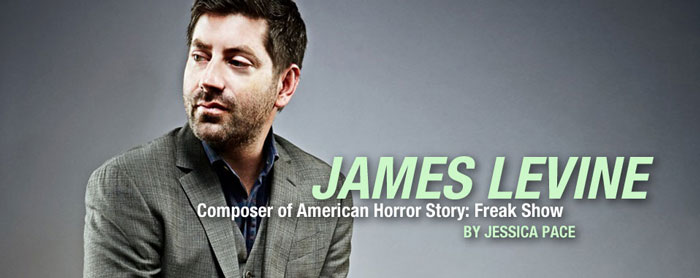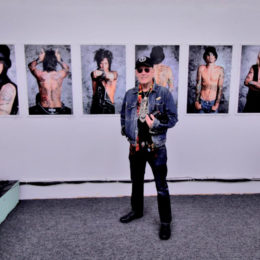 James Levine Composer
James Levine Composer
Most Recent: American Horror Story: Freak Show
Composer James Levine moved to Los Angeles after college when he was 22 years old, interning for Hans Zimmer and scouting for gigs scoring for film and TV series. In 2003, a music supervisor PJ Bloom heard Levine’s work and suggested the composer to Ryan Murphy, the producer of then-new television show Nip/Tuck, which became Levine’s first gig and the beginning of a long working relationship with Murphy, who created American Horror Story in 2011. Levine scored all three seasons and is now working on the fourth, Freak Show.
“When he did American Horror Story, I had to prove that I could score a horror series, and fortunately they really liked it,” Levine says. “I love working with Ryan and that collaboration is always exciting and challenging. He brings such a level of creativity and risk-taking to his projects. I love to collaborate with any producer willing to go someplace different.”
At the beginning of each season, the composer and the directing crew worked to establish a musical tone to fit specifically with the setting and characters.
“Usually,” says Levine, “Ryan has a clear picture of what he wants the sound to be. It’s not always typical. Sometimes it is more traditional like Season Two, where we try to spin a lot of traditional techniques from the horror genre, to season three, Coven, where he wanted it to be a very electronic-sounding score.”
According to the composer, each season is his favorite, and while working on each he “puts the blinders on” and becomes immersed in characters.
“The biggest challenge is to find new ways to do horror that aren’t so obvious or traditional and try to find ways to use music to play not only the fright factor, but to play the characters, because they are such wonderful actors, and the parts they play are so deep and complex. I want the music to reflect that and work behind their eyes, to come from within and reflect the essence of them, as opposed to just playing with the horror clichОs.”










